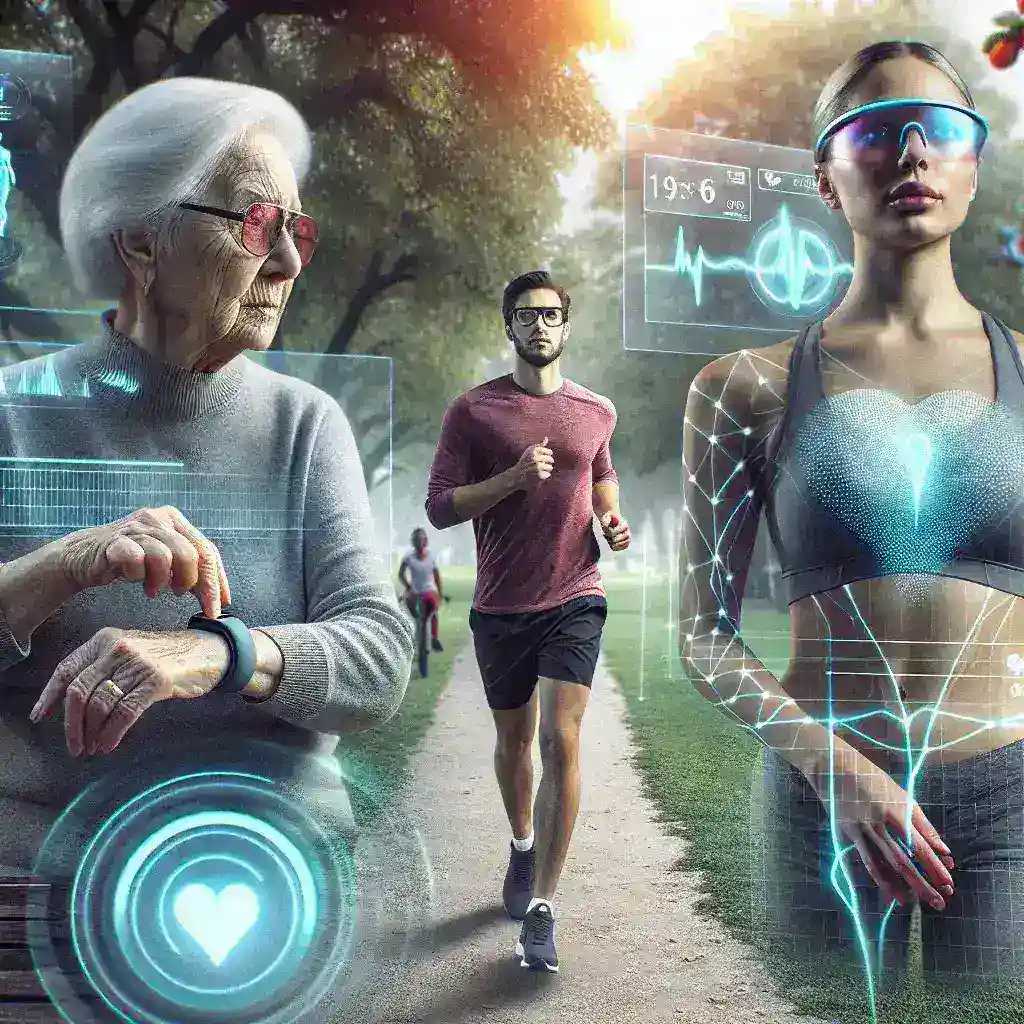The Evolution of Wearable Health Technology
In recent years, wearable health technology has undergone significant transformations. Starting from simple pedometers to advanced fitness trackers and smartwatches, the landscape of wearable health devices is continually evolving. These devices have become integral in monitoring and improving our health and wellness. But what does the future hold for wearable health technology?
Key Features and Benefits
Wearable health technology encompasses a variety of features that benefit users in multiple ways:
- Real-Time Health Monitoring: From heart rate monitors to blood oxygen level sensors, wearable devices provide real-time health data that can help individuals manage their health better.
- Fitness Tracking: Wearables like smartwatches and fitness bands can track daily activities, workout routines, and sleep patterns, encouraging a healthier lifestyle.
- Chronic Disease Management: Devices like continuous glucose monitors for diabetics help in managing chronic conditions by providing accurate and timely data.
- Remote Patient Monitoring: Health professionals can monitor patients remotely, which is particularly beneficial for those with mobility issues or living in remote areas.
- Data-Driven Insights: The data collected from wearables can be analyzed to provide insights into one’s overall health, leading to better medical decisions and personalized care.
Current Market Trends
The market for wearable health technology is rapidly expanding, with new innovations emerging regularly:
- Advanced Sensors: Wearables are now equipped with advanced sensors that can monitor various health metrics, including ECG, blood pressure, and even stress levels.
- Integration with IoT: Wearable devices are increasingly being integrated with the Internet of Things (IoT), enabling seamless data sharing between devices and healthcare systems.
- AI and Machine Learning: The incorporation of AI and machine learning algorithms in wearables allows for advanced data analysis, predictive analytics, and personalized health recommendations.
- Improved Battery Life: Newer devices come with enhanced battery life, ensuring they can be worn for extended periods without needing frequent charging.
- Stylish Designs: The focus is also on making wearables more fashionable, encouraging more users to adopt these devices.
The Future Prospects for Wearable Health Technology
The future of wearable health technology looks promising, with several exciting developments on the horizon:
1. Enhanced Accuracy and Precision
As technology advances, wearable devices will become more accurate and precise in monitoring various health metrics. This will enhance their reliability and effectiveness in managing health conditions.
2. Integration with Advanced Healthcare Systems
Future wearables are expected to work closely with advanced healthcare systems, facilitating better data integration and more efficient healthcare delivery.
3. Miniaturization of Devices
The trend towards miniaturization will continue, leading to smaller and more comfortable wearables that are less intrusive and more convenient to use.
4. Personalized Health and Wellness Programs
With the help of AI and machine learning, wearables will offer personalized health and wellness programs tailored to individual needs and preferences, thereby improving overall health outcomes.
5. Biometric Authentication
Future wearables may incorporate biometric authentication features to ensure data security and privacy for users, which is crucial for sensitive health information.
6. Expansion into New Wearable Categories
We may see wearables like smart clothing and smart contact lenses that provide health monitoring capabilities, expanding the range of wearable health technology options available to consumers.
Conclusion
The future of wearable health technology promises to revolutionize the way we monitor and manage our health. With advancements in sensors, AI, and data integration, these devices will become an indispensable part of our daily lives, offering enhanced accuracy, convenience, and personalized healthcare solutions. As technology continues to evolve, the potential for wearable health technology to improve our well-being is limitless.

